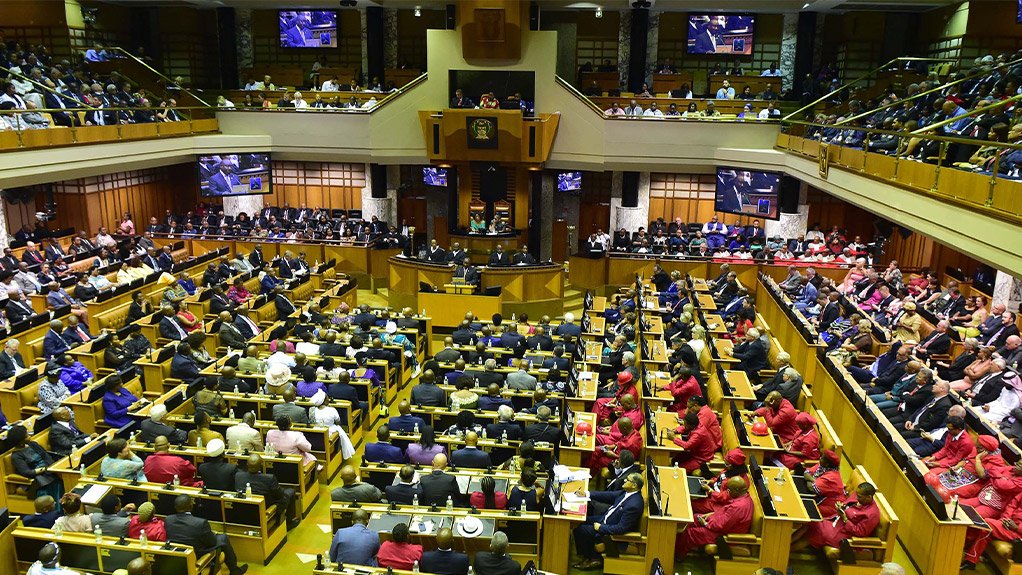To stabilise the country’s debt outlook and reduce spending, government plans to introduce measures to cut down on the public sector wage bill, Finance Minister Tito Mboweni said during his Medium-Term Budget Policy Statement (MTBPS) speech, in Parliament, on Wednesday.
The country’s debt is expected to rise to R4.5-trillion in the next three years, he noted.
“As things stand, without any policy adjustments, debt will most likely exceed 70% of GDP by 2022/23. This is a serious position to be in,” Mboweni said.
Moreover, South Africa’s spending pressures are growing, led by the public sector service wage bill, along with bailouts needed by State-owned companies.
According to the MTBPS, narrowing the deficit and improving the composition of spending required reductions in the growth of the wage bill, which accounts for 35% of the consolidated budget.
A detailed analysis of spending on public sector wages has indicated that 29 000 public servants, plus members of the national executive, MPs, members of the provincial executive, and so forth, each earned more than R1-million last year.
After adjusting for inflation, this is more than double the number of civil servants earning more than R1-million in 2006/7.
The average wage increase across government was 6.8% in 2018/19, or 2.2% above inflation.
After adjusting for inflation, the average government wage has risen by 66% in the last ten years.
Analysis indicates that growth in the public service wage bill needs to decline to reduce the pressure on the delivery of goods and services, as well as infrastructure.
The wage bill accounted for 46% of tax revenue in 2019/20, mainly owing to the above-inflation increase in the average remuneration over the past decade.
The MTBPS indicates that salaries for civil servants have grown by about 40% in real terms over the past decade.
It highlighted that between 2006/07 and 2018/19 – a period that includes the introduction of occupation-specific dispensations for wages – total compensation spending in the main budget more than tripled, from R154-billion to R518-billion.
Moreover, after adjusting for inflation, average remuneration in the public service rose 66% between 2006/07 and 2018/19. Much of this increase was concentrated in 2009/10 and 2010/11, where the fastest rise in wages was recorded in highly skilled professions, including medical doctors, teachers and lawyers, where occupation-specific dispensations were introduced.
MEASURES
Mboweni indicated that the National Treasury would hold discussions in the relevant bargaining structures and with other stakeholders to achieve a sustainable arrangement with regard to the wage bill.
Moreover, he called on State-owned companies, other public entities and the private sector for board and executive management compensation and benefits to be reduced.
To tackle the inflated wage bill, President Cyril Ramaphosa has agreed to several guidelines that will apply to members of the Cabinet and members of provincial executives.
This entails, firstly, that for the foreseeable future, Cabinet members, Premiers and MECs’ salaries will be frozen at current levels, with the likelihood of an adjustment downwards.
Secondly, the cost of official cars will be capped at R700 000, inclusive of value-added tax.
Thirdly, a new cellphone dispensation will cap the amount that can be claimed from the State. In a media briefing preceding his speech, Mboweni indicated that public sector spend on cellphones in the last 12 months had amounted to about R5-billion.
Fourthly, all domestic travel will be in economy class. In a media briefing, Mboweni highlighted that first and business class travel was a "huge waste" of funds.
Lastly, there will no longer be payment for subsistence and travel for domestic or international trips.
“For every R100 received in taxation, R46 goes to employees in the sector, which is drastically high. We need to have a conversation with the public sector on how, in these difficult circumstances, we can moderate the wage bill,” Mboweni said in the media briefing.
He clarified that the number of employees in the public sector would not be reduced, but rather, the level of wages would moderate.
In his briefing, Mboweni noted that there was time before February’s budget for serious conversation around negotiating wage agreements and dealing with the high wage bill.
In his speech, Mboweni called on leadership in Parliament to see how they can further contain compensation and benefits.
According to the MTBPS, other options to be considered in reducing the wage bill include pegging cost-of-living adjustments at or below Consumer Price Index inflation, halting automatic pay progression and reviewing occupation-specific dispensations for wages.
Government will discuss these matters with labour, and progress will be announced in the 2020 Budget.
Mboweni warned that another above-inflation wage agreement in 2020/21 would put additional pressure on the public finances. It would continue the trend of compensation crowding out other areas of spending, widen the structural deficit and limit government’s ability to respond to any new fiscal pressures and risks, the statement indicates.
Mboweni also cited measures from the 2019 Budget, which included early retirement without penalisation; the national macro reorganisation of government; reducing performance bonuses; and freezing of salaries for members of the executive and parliamentarians; but he commiserated that have not realised as much savings as hoped.
Moreover, he noted that early retirement savings are coming through slower than originally anticipated; and, in this vein, the early retirement programme will be reinvigorated.
EMAIL THIS ARTICLE SAVE THIS ARTICLE ARTICLE ENQUIRY
To subscribe email subscriptions@creamermedia.co.za or click here
To advertise email advertising@creamermedia.co.za or click here











